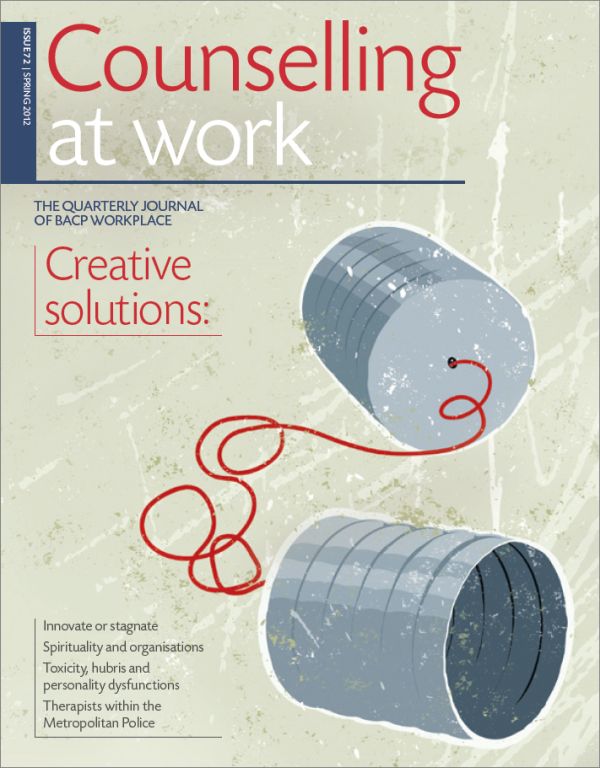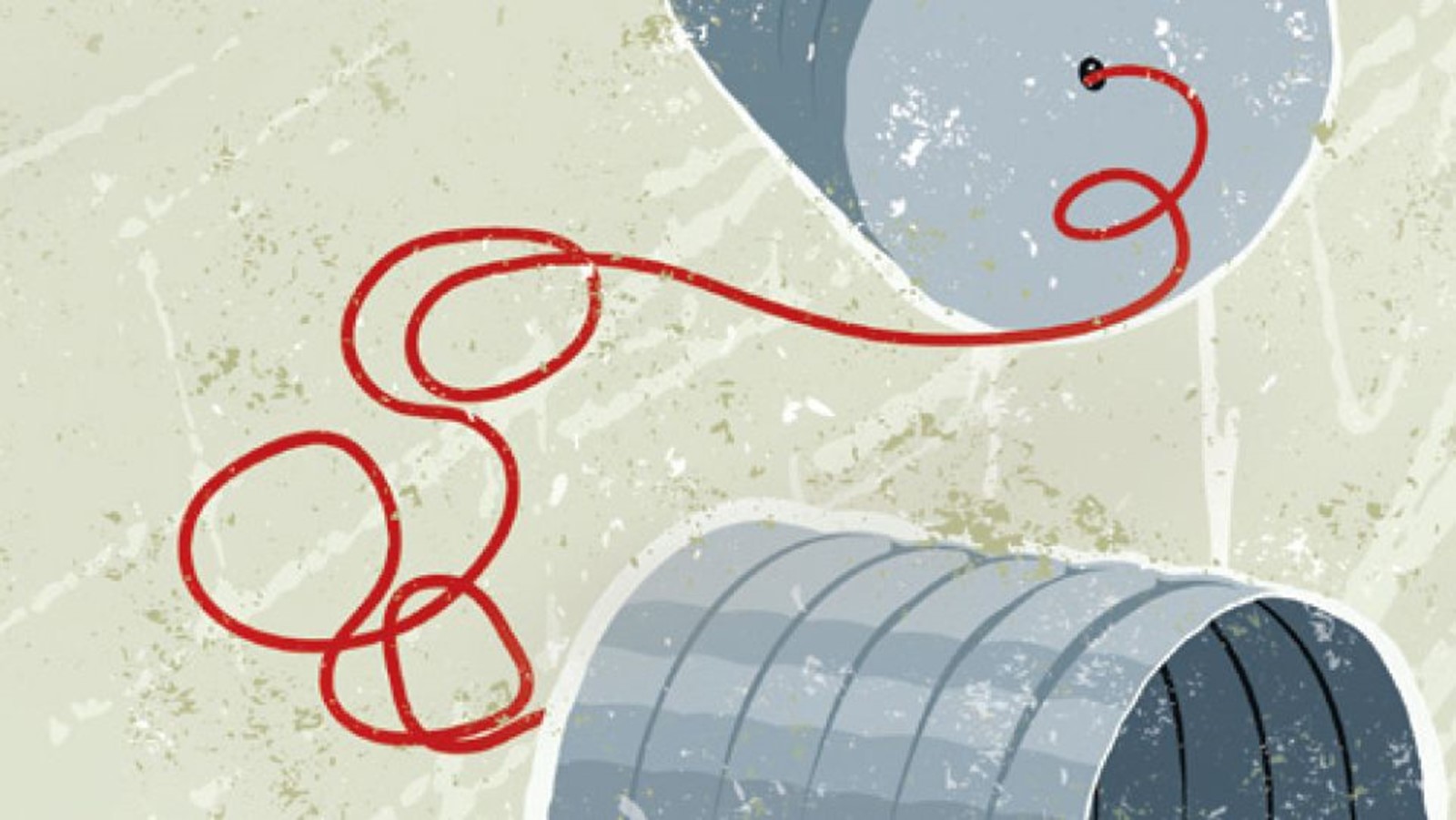In this issue
Eye movement desensitisation and reprocessing (EMDR) in practice at Transport for London
Fiona Dunkley and Melvin Claridge explain how the trauma intervention model works
Innovate or stagnate
Richard Hopkins discusses the evolving approach to employee wellness and the role of employee assistance (EA ) professionals
Spirituality and organisations
Revd Dr Peter Johnson maps out the landscape
Toxicity, hubris and personality dysfunctions
All executives have the potential to become dysfunctional – Michael Walton develops a hypothesis to help workplace counsellors better identify potential personality disorders
Therapists within the Metropolitan Police
Carol Sharp and Fiona Blair reflect on the roles and consider the impact of change
The interview
Gladeana McMahon

Articles from this issue are not yet available online. Divisional members and subscribers can download the pdf from the Counselling at Work archive.
First words
I don’t want to get all Martin Luther King on you but ‘I had a dream’. A couple of nights ago actually. In the dream I was in Tesco and not only were all the staff wearing large badges, stating ‘I am a person’, but they were wandering around introducing themselves to shoppers, saying, ‘Hello, I’m a person’. To which, most shoppers would smile and reply: ‘Hello, person.’
I’m sure many of you dream experts would have a field day here, but I can safely deduce that the dream was inspired by catching up with a friend from university days – she was explaining to me that one of her roles in her organisation (not Tesco) included finding ways for staff to feel more valued at work, to instil a sense of pride and passion in their work, rather than just seeing their job as a job for a job’s sake.
With unemployment nudging towards three million, you’d think people would be grateful for what work they have. But we know the reality can be quite different. Some jobs can be mundane, repetitive and uninspiring. Or involve dealing with irate and aggressive customers. Or tackling violence and intimidation from the public. And whilst organisations have a duty of care towards their staff, we probably all co-exist with people who work… in public transport, financial institutions, utility providers, local services, supermarkets etc. We, as the Great British Public, have a responsibility too: to value the people who work to provide us with the products and services that enable us to live our lives.
When things do go wrong, though, it’s good to know there are some organisations that offer their staff a range of support interventions. I’m delighted to introduce to you Fiona Dunkley and Melvin Claridge from Transport for London who have written a fascinating article about the use of eye movement desensitisation and reprocessing (EMDR) for staff who have experienced some form of trauma. They explain how EMDR works and illustrate this with real-life examples.
Thanks also to Richard Hopkins, who argues that it’s not just the responsibility of organisations to be waving the wellbeing flag, but that employee assistance professionals have a unique opportunity to influence wellbeing values, attitudes and policy.
As we continue to seek meaning in what we do at work, there is a dimension that, personally, I believe is often ignored. During my MPhil research into emotional intelligence, a decade or so ago, I came across increasing references to ‘spiritual intelligence’. I’m very grateful to Reverend Dr Peter Johnson for his contribution on spirituality in the workplace.
Following on from his excellent article in the previous issue of the journal on ‘Derailment themes and personality variables’, Dr Michael Walton looks at how all corporate executives have the potential to become dysfunctional. He offers you, the workplace practitioner, an invaluable insight into how to potentially identify personality disorders.
Many thanks also to Carol Sharp and Fiona Blair from the Metropolitan Police. They open the door to highlight the roles and experience of being a therapist for the Met and specifically during fairly constant change. Everyone seems to be battling change these days and their perceptive questioning helps us to reflect on how this might affect us.
‘Super-Coach’, Gladeana McMahon takes ‘The interview’ slot this issue. Whilst you probably know Gladeana through BACP-related connections or offering sage advice on the telly, you can find out more about her.
Hopefully, this issue inspires you to better value the people who bring us products and services that enrich our lives. Next time I’m in Tesco, I’m going to ‘hug a cashier’. Well… thinking about it, that might get me arrested. Perhaps a smile and a ‘thank you’ then. And do I remember the dream I had last night? Yes. Shall I tell you what happened? No. For that, I would definitely get arrested. I’m off for a nap. I hope you enjoy this issue.
Rick Hughes
Editor
